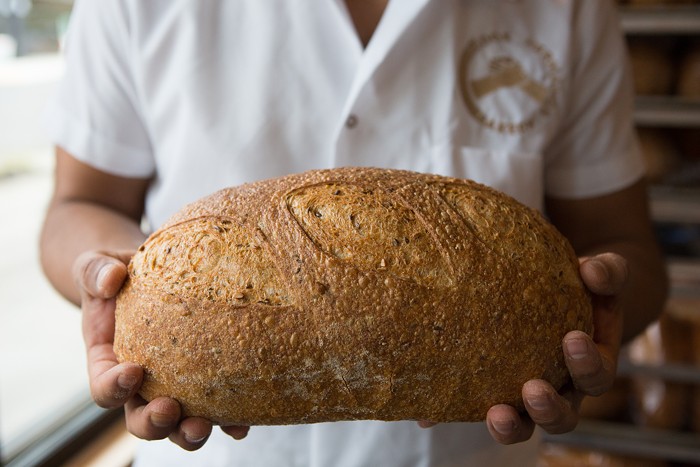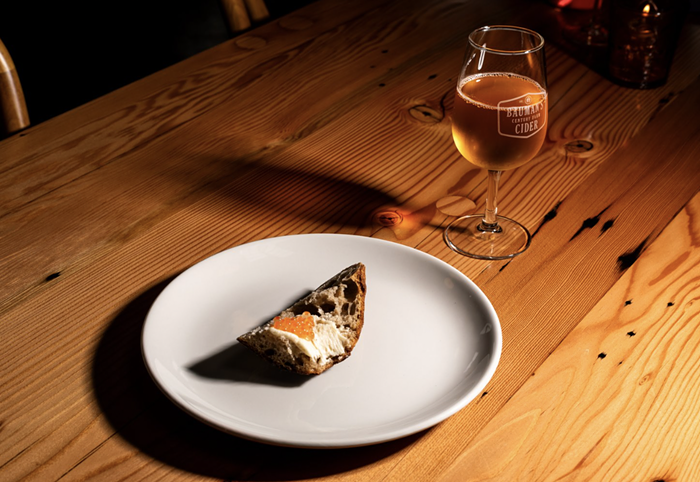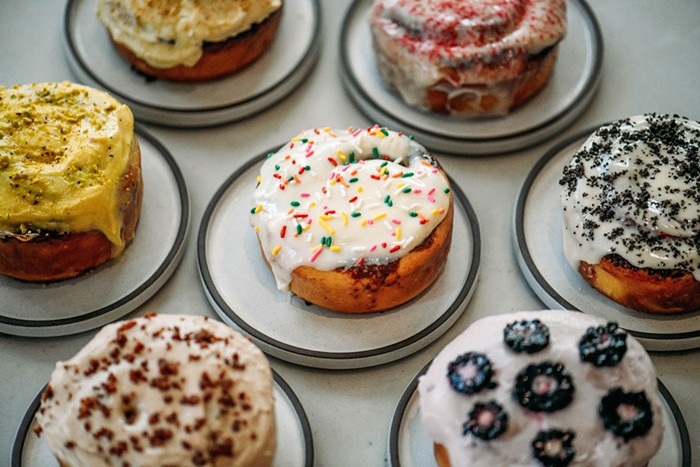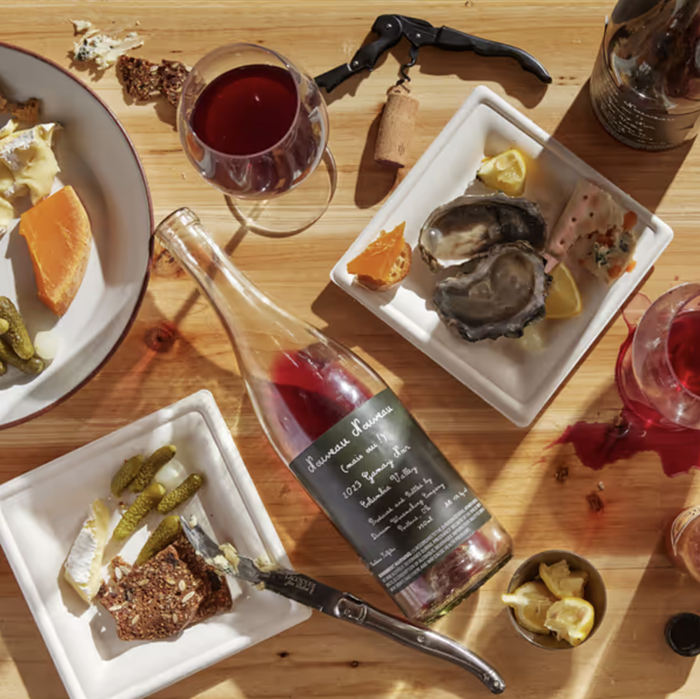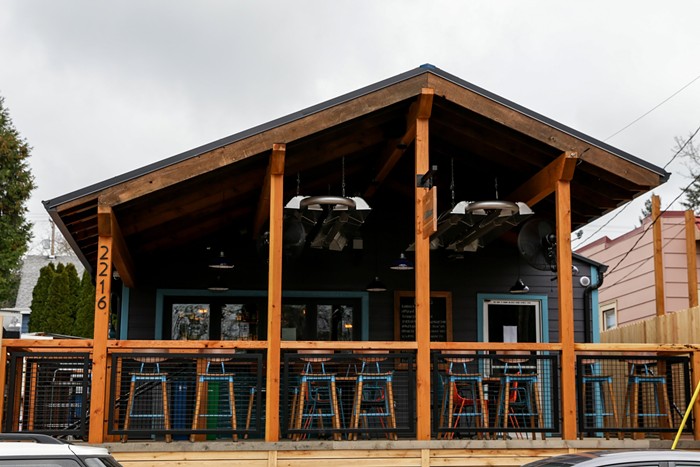If there’s anything the Pacific Northwest loves—besides rain, flannel, and the satisfying sense of superiority—it’s craft beer, the unique, sturdy brew that reflects the history and agriculture of where it’s made and is painstakingly created at independently owned and operated breweries. In Portland, we’re lucky: As one of America’s first craft beer hotspots, the city is drenched with the stuff.
But even in this wondrous beer utopia, it’s harder than one would expect to find truly independent breweries. Figuring out if a pint comes from a hard-working local brewer or a multinational conglomerate can be a labyrinthine process that requires both a love of beer and a degree in economics.
(I have the former. The latter, not so much.)
To know who’s getting your money when you buy a beer, one first has to know about Anheuser-Busch InBev (AB InBev), the all-powerful Thanos of the beer industry that, with the snap of its fat fingers, can change everything. Well, for beer drinkers, at least.
The entity we know as AB InBev can trace its roots back to a single, very old Belgian brewery—Artois, founded in 1366—but in recent decades, it’s grown, and grown, and grown again, buying and taking over big chunks of major breweries and other conglomerates. From Canada’s Labatt Brewing Company to Harbin Brewery in China, and from Mexico’s Grupo Modelo to Foster’s Group in Australia, AB InBev is everywhere. Thanks to a hostile takeover of Anheuser-Busch Companies in 2008, AB InBev now sells Budweiser and Bud Light, Corona and Stella Artois, Pacifico and Rolling Rock. Last month, the Economist noted AB InBev now sells a quarter of the world’s beer—or, if you prefer a visual that’s simultaneously wonderful and disgusting, “three Olympic-sized swimming pools of beer an hour—more than its three nearest rivals combined.”
(Those rivals, by the way, are hardly tiny—they include sprawling companies like Heineken and MillerCoors.)
In Portland, where even grimy convenience stores are full of beers with cutesy names and whimsical labels, AB InBev can seem far away. But as the market dominance of major brand-name beers like Budweiser has faltered, groups like AB InBev are trying to make up the difference by quietly buying up small breweries and selling “craft” beer to unknowing drinkers.
Take Widmer Brothers, the Northeast Portland brewery that closed its taproom in January, but remains one of the city’s foundational breweries. Dig a little and you’ll find Widmer is owned by the Craft Brew Alliance—an organization that sounds like a small, dedicated business support system. Dig even deeper, though, and you’ll find the Craft Brew Alliance is actually a larger company—one that also owns Seattle’s Redhook Ale Brewery, Hawaii’s Kona Brewing Company, and the gluten-free Omission Brewing Co. And a big piece of that scrappy-sounding Craft Brew Alliance—just under one-third—is owned by AB InBev.
Or there’s Full Sail Brewing, which helped put Hood River, Oregon, on the map as a destination not just for windsurfing, but also for beer—in the process, paving the way for the town’s current brewery darlings, Double Mountain Brewery and pFriem Family Brewers. Full Sail once boasted on its labels that it was independent and employee-owned—but in 2015, those same employees agreed to sell the company to Oregon Craft Brewers Co. Despite its name, Oregon Craft Brewers Co. isn’t all that local—it’s part of a San Francisco-based private equity firm, Encore Consumer Capital.
The story repeats, again and again, with boutique beers loved by Oregonians becoming subsidiaries of enormous businesses. Bend’s 10 Barrel Brewing Company sold out to AB InBev in 2014; in 2016, Eugene’s Hop Valley Brewing Company was bought by MillerCoors. Indie brewery founders are often the first to tout the benefits of these sales, insisting their beers will stay exactly the same and be accessible to even more people.
In theory? Sure! In practice, that’s not always the case. While the independent craft brewing community is a friendly one, profit-obsessed corporations have no such inclinations. As Portland beer writer Jason Notte wrote for the MarketWatch website in 2017, AB InBev has a history of using its size to control basic brewing supplies like hops—keeping them out of the hands of the smaller, locally owned breweries that push the craft forward.
Not all breweries want to get swallowed by giants like AB InBev. Ninkasi Brewing Company in Eugene, for instance, turned down several offers to sell.
“You become part of a system that is very powerful and provides access to a lot of resources, but they’re also not really aligned with the values of the craft industry,” Nikos Ridge, a co-founder of Ninkasi, told the Oregonian in 2016. “For many years they’ve worked to try to keep the craft industry from growing. If they had their way, they’d sell every beer sold in the US, and that’s not what the craft industry is about.”
In April 2019, Ninkasi sold a majority share to Legacy Breweries, Inc., a startup that plans to purchase multiple breweries across the country. “This is a huge next step for us in terms of opening up creative partnerships to drive growth in a very dynamic environment,” Ridge told Aaron Brussat in an interview about the sale for the beer blog the New School. “‘Independent,’” Brussat later noted, “has become a fluid concept in the beer industry.”
For now, a number of great Oregon breweries remain independent: Double Mountain and pFriem, Deschutes Brewery, Ecliptic Brewing, Hopworks Urban Brewery, the nonprofit Ex Novo, and many of the Portland upstarts opening their doors, even amid the closures some of the city’s old-guard brewpubs like Bridgeport Brewery (which itself was sold, in 1996, to Gambrinus, a San Antonio company). But thanks to decades of lax financial regulations that have rigged the market against independents, the odds of success are daunting.
“After nearly two generations of antitrust malpractice in which companies were allowed to grow by gobbling up their small competitors or merging with their largest ones, we are living through a new Gilded Age in which trusts are on the rise,” wrote author Cory Doctorow earlier this year. “Finance is dominated by a handful of giant banks; liquor and beer are dominated by a pair of giants, too. Cable, telecoms, shipping, oil, bookselling, movie theaters, and, of course, internet and media.”
So—as is the case with just about any product—the fate of independent craft beer depends on whether consumers care enough to seek it out and support it. It’s easy to be cynical about the outcome of anything that relies on consumers’ sense of right and wrong: Many of us bemoan the rise of corporate surveillance and feel sad when a neighborhood business closes, and then many of us keep posting on Instagram and buying from Amazon.
But to look at the pint as half-full: Craft beer is better than it’s ever been, and craft beer lovers are a tenacious breed. (You’ve had to listen to at least one of them rhapsodically mansplain IBUs. You know how they are.) Which means as long as we continue to put in a bit of research and a whole lot of drinking, the very things corporations want to co-opt about independent craft beer—its quality, its inventiveness, its rambunctious spirit—will be the things that keep it flowing.
Editor’s note: This story has been updated with details about Ninkasi’s recent sale to Legacy Breweries, Inc.


